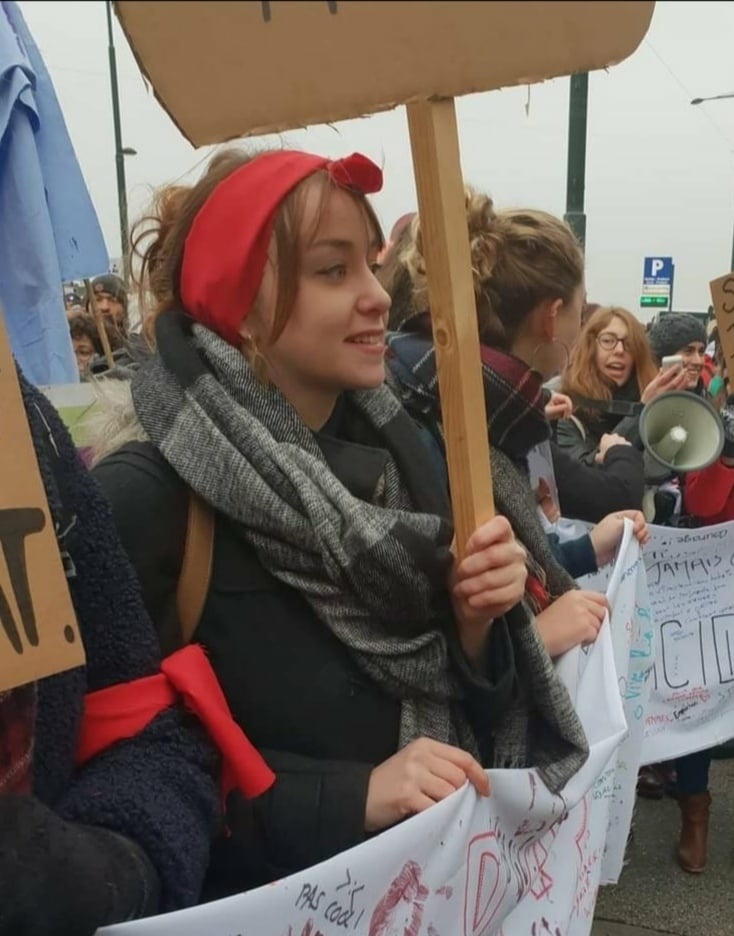In Belgium, the United Kingdom and France, hundreds of women are breaking the silence about sexual violence suffered in bars, often in full view. A movement that could well cross the Atlantic and spread to Quebec.
After the #metoo and #balancetonporc movements, it’s #balancetonbar’s turn to gain momentum in Europe. By this hashtag, hundreds of European women have chosen to testify on social networks of the attacks experienced in festive environments. They thus created a real shock wave.
“It started in Brussels, with two [bars] where women denounced a waiter who drugged people, ”explains Florence Hauteclaire, volunteer for the feminist collective Et ta Sister ?, head of the #balancetonbar movement in Liège.
“When it became known, the boss just changed the bar server, denounces Florence Hauteclaire. The police and the authorities did not really react to the various accusations. At one point, Brussels women wanted to make their voices heard. ”
These voices are about sixty chilling testimonials on the Balance ton bar Instagram page, created in mid-October.

IMAGE FROM INSTAGRAM
Anonymous testimonials on the Balance ton bar Instagram page
“I remember having drunk half of my drink and then nothing… black hole.” ”
“They were the ones who informed me that I had most likely been sexually assaulted at Rock Classic. ”
“I wake up hours later, alone and lying on the floor upstairs, my pants and panties down. ”
If the victims are anonymous, the name of the bars is clearly visible. The Instagram page quickly grew, appearing under the names of other cities all over Belgium and France.
Friday, a collective call to boycott bars was launched in Belgium.
A movement that is gaining momentum
“It is really a hyper spontaneous movement of visibility of violence which already existed for years, but which was not heard”, explains Florence Hauteclaire.
Paris, Liège, Toulouse, Marseille, women from many cities have added their accounts of bad experiences in bars to that of Brussels women. In parallel, in the United Kingdom, students claimed in October to have been drugged by injection without their knowledge on dance floors and in nightclubs. Since then, a boycott of clubs and bars, grouped under the term Girls Night In, has appeared. A petition has also been submitted to the British Parliament so that searches become mandatory at the entrance of establishments.

PHOTO PROVIDED BY FLORENCE HAUTECLAIRE
Florence Hauteclaire, volunteer for the feminist collective Et ta Sister?, Head of the Balance ton bar movement in Liège
We’re really trying to get the message across that victims shouldn’t feel guilty. It is a bigger problem than them.
Florence Hauteclaire, volunteer for the feminist collective Et ta Sister?, Manager of Balance ton bar in Liège
And in Quebec?
“It’s a European movement, maybe, but we have a lot of cases like that [d’agressions dans les milieux festifs], here, in Quebec ”, estimates Catherine Rossi, professor of criminology at Laval University specializing in violence against women.
“I think anyone who is old enough to consume alcohol in an establishment or a club [au Québec] has heard horror stories from those around her, ”also believes Alexandra Dupuy. She is the co-founder of the Quebec collective # jaichangémoiaussi, which aims to give a voice to victims of sexual or racist attacks.

PHOTO PROVIDED BY ALEXANDRA DUPUY
Alexandra Dupuy, co-founder of the # jaichangémoiaussi collective
According to her, the exact extent of the phenomenon is not known in Quebec. “It’s time for these establishments to question their practices,” says Alexandra Dupuy. And not to close their eyes if they know something is going on. ”
A vision shared by Peter Sergakis, president of the Union des tenanciers de bars du Québec. “The tenants cannot be negligent either,” he believes.
In 2015, Mélanie Lemay submitted to the National Assembly a petition aiming to deploy a campaign to remind people that “alcohol does not equal consent”. Co-founder of Quebec against sexual violence, she is delighted with the emergence of the #balancetonbar movement. “What has always interested me is how we can ensure that the impunity and the hunting grounds of these people are removed. [les agresseurs] », She says.
“The date rape drug is alcohol,” observes Mélanie Lemay. Over 80% of adult victims [d’agression sexuelle] have that substance in their body, in the party scene, ”she emphasizes. “Aggression by intoxication is a strategy to blur consent in the eyes of people,” she also denounces.
“A woman should never have to choose which bar to go to. She should never have to think about the way she is dressed – you never do it for a man, also believes Catherine Rossi. And that’s what is being said [avec le mouvement #balancetonbar] ! ”

